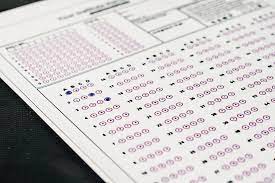Standardized testing: is it friend or foe?
High school has a lot of challenges. Juggling homework and social life is difficult enough, not to mention tests and extracurricular activities. On top of this, as you get closer to senior year, you worry about college and applications. Not too long ago, a large part of the application process was what score you got on the ACT/SAT. Many colleges had a requisite minimum score to go to that college. Now, the scores are less important, with colleges looking more at grades and essays.
This change mostly came from questioning how accurate standardized testing is for admitting new students. Despite this, the ACT/SAT is still administered, and can help students get into college. Whereas before, it was a requirement, now it is simply another way to gauge a student’s ability.
The real question is: is standardized testing good or bad? Some think it’s a good way to tell the intelligence of a student. In fact, according to a survey conducted in Mar. of 2022 by the Pew Research Center, 39% of people surveyed thought standardized test scores should be a major factor in admissions decisions. 46% thought it should be a minor factor, and 14% thought they should not be a factor at all. Most people said that high school grades should be a major factor, coming in at 61%.
Colleges are starting to drop the standardized testing requirements. For example, Princeton has no minimum score. According to their website: “We employ no minimum test scores for admission; rather, the entirety of a student’s background is considered in context.” Students now have more advantage, specifically if their SAT or ACT scores are not great. The catalyst for this change was the ‘Every Student Succeeds Act’ or the ESSA. This worked to reduce standardized testing and high stakes decision making. When the ESSA was created, standardized testing was around 275 years old in the U.S.
Standardized testing can be a good way to test college readiness, but it also does not show all of the skills of any one student. Many students have testing anxiety, which gets even worse when faced with a test that will affect their whole college career. Many students have the skills and intelligence of the high scoring students, but have trouble expressing it in test form. This causes admissions to be weighed in the favor of the good test-takers.
Along with that, standardized testing only outlines the main parts of the core subjects. A large part of students have more skill in arts and music, or mechanical engineering. While the core subjects are important and provide good building blocks for life, they should not be the determining factor for college admissions. Blocking a bright student from entering college simply because they scored lower on the ACT can harm their future significantly.
NPR detailed some very good alternatives to standardized testing way back in 2015. One idea in the article was portfolio-based assessments. Namely, the idea of doing projects and papers to assess a student’s skills. This, at least, would provide a less stressful atmosphere, as there would not be such a short time limit. Students already do projects and papers along with standardized testing. Compiling those and using them as assessments might be a better, although not perfect, way to calculate intelligence.
This method still has the problem of not assessing the skills of every student however. A solution would be to allow the students to choose the topic of the paper/project along with the standard topics, within reason of course. Providing students the opportunity to create something they find passion in, as well as assessing their core skills. Possibly having two different assignments, one with chosen and one with the standard topics, would provide more insight into a student and their talents.
The system of standardized testing is flawed. Students need a better way to show their creativity and skills. Thankfully, the minimum scores for the ACT and SAT are being dropped, becoming just another way to look at skills. This is in stark contrast to before, when they worked to obscure a student’s true skills. Unfortunately, standardized testing isn’t likely to disappear, but the dropping of importance is a good step. Students should still try their best on these tests, but keep in mind that they are not the measure of intelligence that the world makes them out to be.
North Dakota should start easing the necessity of the scores on the tests away, until they can be an added benefit, not a requirement, of college applications. Standardized testing, at its core, is a foe to the success of students, and needs to be replaced or demolished.
Your donation will support the student journalists of Fargo North High School. Your contribution will allow us to resume physical printing of our newspaper for students at Fargo North!

I am an avid reader and writer, and love learning about what's going on in the world. I love experiencing the community in Fargo, and talking...





